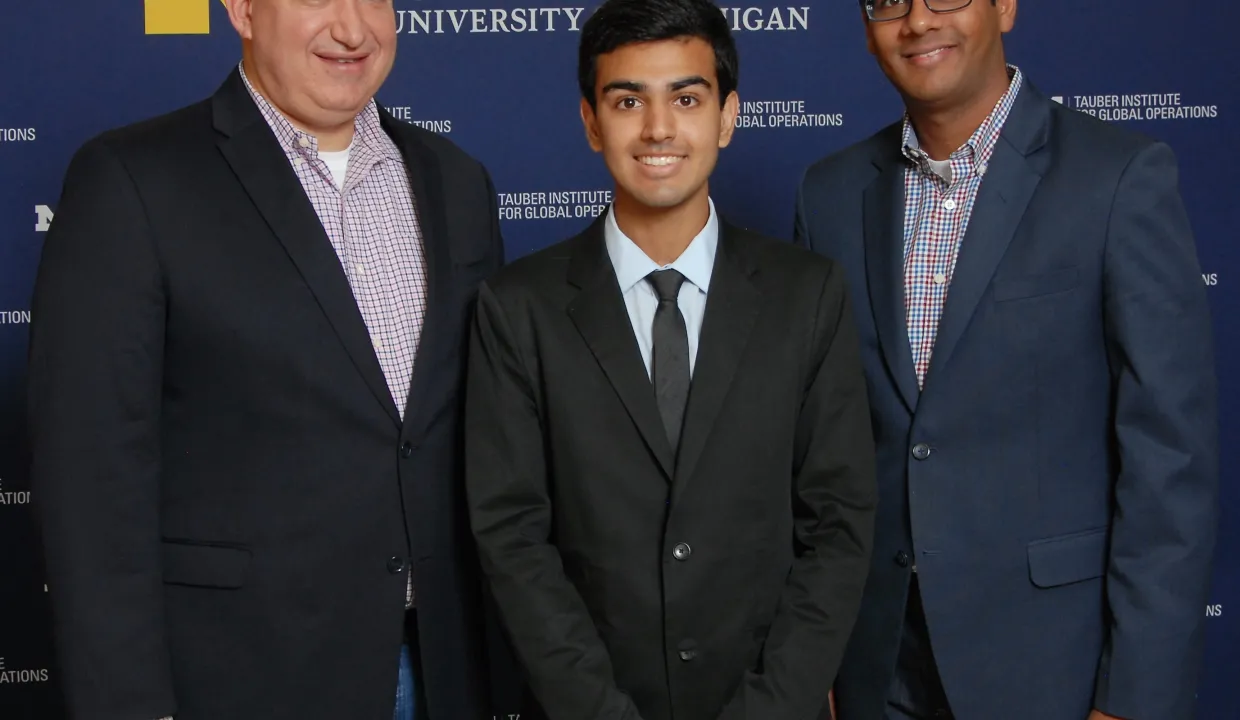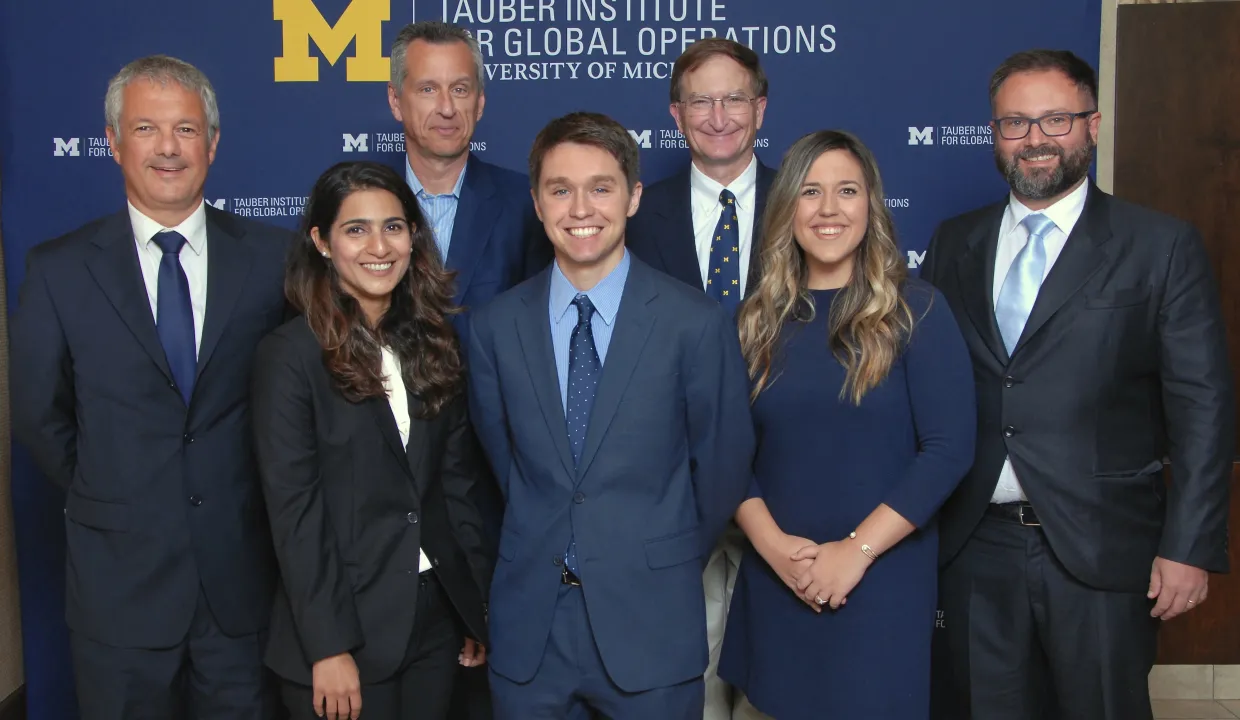
News
Welcome to Tauber Institute for Global Operations News.
Explore our press releases, feature articles, and announcements about Tauber students, speakers, team projects, and events.

Welcome to Tauber Institute for Global Operations News.
Explore our press releases, feature articles, and announcements about Tauber students, speakers, team projects, and events.

Ann Arbor, MI—In the summer of 2023, Tauber students Griffin Riley (BTS) and Abrajeedhan (AB) Srilatha (MBA) set out to engineer a cleaner, healthier world with Modine Manufacturing. Their project, ‘Developing a Standard Rough Cut Capacity Planning (RCCP) Model for Modine’s Air-Cooled Applications Business’, would go on to earn them second place and $4,000 each in scholarships at the 2023 Spotlight! Competition.
“Our challenge was to create a rough cut capacity planning model for one of the verticals of Modine’s business,” said Riley. “The main problem was that facilities were measuring capacity independently and didn’t have a way of visualizing that capacity in the long term. So, we were tasked with originally building for one plant a way of visualizing capacity in the future.”
“We built this model thinking about what data should go in on either side and how to compare the available data and the required data,” said Srilatha. “We built this model using Power BI, a lot of data crunching, a lot of interviewing, and then understanding how it is going to be effective to the users.”
The students set the tone right away. With Srilatha having a military background and Riley being right out of undergrad, they accepted each other’s feedback and learned how to contribute together to create a great overall experience.
“The most fun thing for me was the travel opportunity,” said Riley. “We got to go to three facilities. One included overseas travel to Chennai, India, which was a great experience as someone who’s never traveled overseas before.”
“We had two final projects for this project. One was presented to the CEO and the CTO,” said Srilatha. “They were so excited seeing how this model has come up. The second presentation was to the users in different facilities throughout North America. We could see on their faces how happy they were seeing the impact this model was going to create once implemented.”
They accepted each other’s different ways of analytical thinking, problem-solving, and leadership abilities, and it radiated from them as they accepted their second-place win at the Spotlight! event. If the student team could go back in time and offer the past version of themselves advice, they had this feedback:
“Trust the process and exude confidence in yourself,” said Riley. “You get so much experience working on such an intensive project. It’s not like any normal internship. By the time you get to Spotlight! as a Tauber 2, you are an absolute expert in the field you are in.”
“Exactly,” agreed Srilatha. “You need to trust the process strongly. It guides you through every step so you end up in a job you really like. And be open in terms of feedback. This is going to help you a lot in gaining that knowledge you desire when you start the project, and ultimately, working in a good environment and learning those skills you are here for.”
- Business + Engineering students solve Operations challenges at leading global firms.
Ann Arbor, MI—In the summer of 2023, Tauber students Griffin Riley (BTS) and Abrajeedhan
Ann Arbor – When faced with operational challenges, Target turned to a talented group of
Our students have many opportunities to practice their leadership skills by actively participating in various boards and committees.


The current Azure promotions strategy is limited by operational constraints that exist in Microsoft’s legacy platforms. Due to these constraints and the lack of a cohesive strategy, Azure business planners have not been able to realize the full potential of promotions. The Tauber team focused on two different areas of Microsoft's cloud-first, modern transformation. First, the team was tasked to create a go-to-market strategy for modern promotions based on evaluating the current promotions structure of Microsoft cloud applications.

The BorgWarner Morse Systems Arcore plant would like to implement machine vision for automated inspection to ensure product quality. The Tauber team was tasked with providing a technical evaluation of automated visions systems to meet quality standards and reduce inspection costs.

The Boeing 787 Dreamliner is one of the most innovative products that The Boeing Company has ever produced, and the aircraft faces ever-increasing demand from commercial airlines. Mechanics building the aircraft complete work using premade kits; however, these kits are not always fully stocked with the parts needed to complete work.